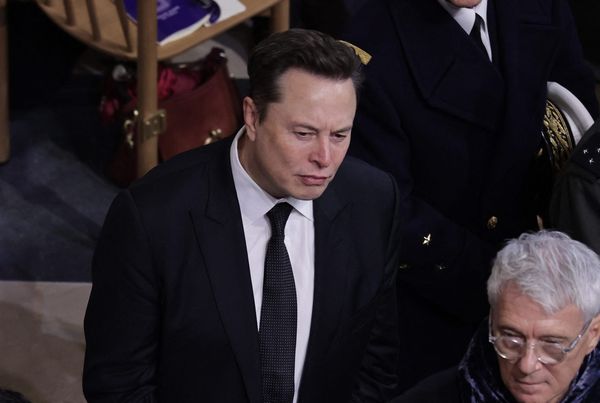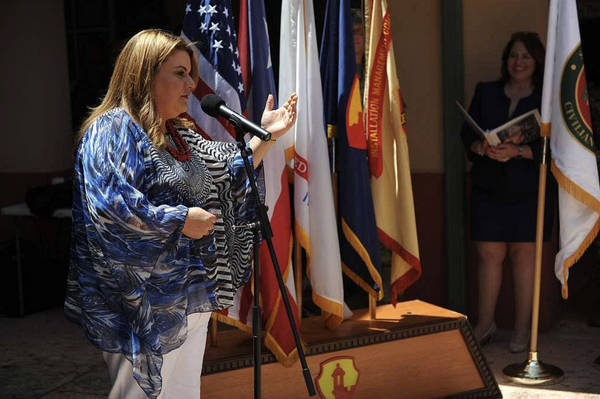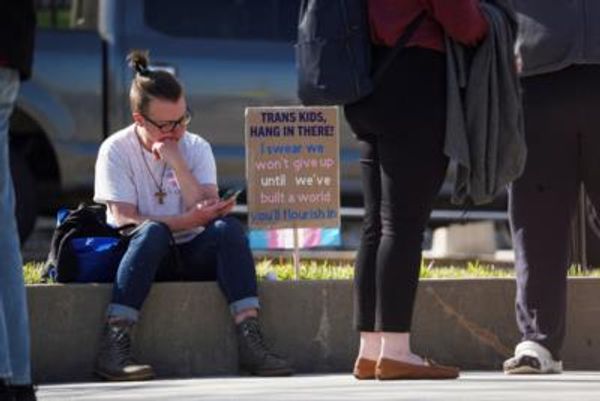
It’s perfectly fitting that Scott Morrison’s final official act as prime minister should have been one of pure self-interested political bastardry at the expense of vulnerable people. Stick that on his headstone — it’s all he deserves.
Instructing Border Force to publicise the turnback of an asylum seeker boat from Sri Lanka was transparently revolting, but will there be consequences? Short answer: no.
It didn’t break any laws. The goings-on of the grandly named Operation Sovereign Borders, militarised for show as they have been ever since Morrison’s term as immigration minister, aren’t actually classified. The secrecy attached to “on water matters” has never been about national security, just political optics, openly breached whenever it suited Morrison to splash about some threat of incoming boat people.
While our laws criminalise pretty much any disclosure of government information by public servants, the government can choose what and when to reveal. So legally speaking it was within Morrison’s power to make sure we all learnt about the interception of a “vessel en route to Australia”.
What were broken were the “caretaker conventions”. These refer to the period between the calling of an election and the appointment of the new government, the so-called caretaker period. The basic idea is that a government ceases to hold the electorate’s mandate to institute policy and proactively govern once the campaigning starts, because it may not be the government after the election. So it goes into “caretaker mode”, keeping its hand on the tiller but doing the bare minimum to maintain governance.
The caretaker conventions are a serious business, generally treated as such by all parties and formally documented; the current version of the guidance document issued by the Department of Prime Minister and Cabinet was updated in December 2021.
As the guidelines say, the critical point comes when the governor-general dissolves Parliament in anticipation of an election. The temporary non-existence of Parliament means that the executive arm of government is no longer subject to its oversight, and so a key part of the three-cornered system of government breaks down. Government, accordingly, goes small.
The major conventions are that the caretaker government should avoid making major policy decisions or significant appointments or entering into major contracts or undertakings. And it should not use the resources of the government and public service “in a manner that may advantage a particular political party”.
The guidelines go into great detail on the practicalities of ensuring the conventions are followed, but really the principles are very straightforward: do as little as possible, and leave the public service out of it.
According to media reports, Morrison’s office directly requested Border Force (part of the Department of Home Affairs) to publicly release details of the boat turnback operation while it was in progress. Home Affairs officials were concerned that doing so could breach caretaker conventions but presumably concluded it would not.
That, it seems to me, was obviously wrong. The question that should have been asked was: what important public interest would be served by the public announcement. That question should have considered the context: it was election day, and making the announcement would directly contradict longstanding policy of the government with respect to precisely such matters. That is, the announcement would be a dramatic departure from precedent in a highly politicised context.
The obvious and only conclusion that should have been drawn was that there was no public interest justification available, but plenty of reason to appreciate that the government’s request was motivated by its own political interests. Border Force should, accordingly, have resisted and refused to allow itself to be used in this obviously politically partisan way.
That failure by the officials should have consequences for them. However, the far greater evil is that they were placed in such an invidious position. The question should never have been asked. That is on the now former prime minister.
The caretaker conventions have no legal force. A breach of them isn’t unlawful. Nobody will be punished. While the public servants could theoretically face disciplinary action (they won’t), there is no mechanism for holding Morrison accountable for his flagrant breach.
That is also fitting, because the Morrison government stands out as the Australian government that most consistently and wilfully breached the conventions of our democracy. In its conduct of the business of Parliament, disregard of ministerial responsibility, politicisation of government appointments and the public service and attacks on the independence of the judiciary, it never met a convention it didn’t instinctively want to trash.
It ended as it began: a disgrace.







